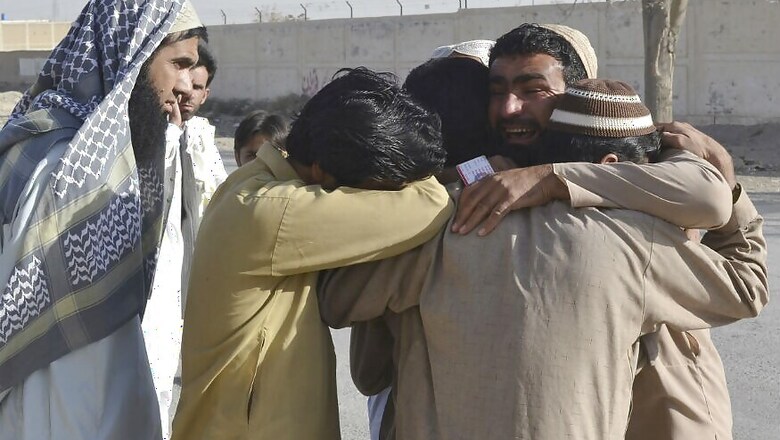
views
The Quetta terror attack that killed scores of police cadets brings back to focus the National Action Plan (NAP), Pakistan's grand plan to fight terror, which has been dubbed by critics as the 'National Inaction Plan' for its inability to put any new radical action plan into practice to combat terror and non-state actors.
The NAP was announced by Prime Minister Nawaz Sharif in a televised address to the people of Pakistan after the gruesome attack on the Army Public School in Peshawar that left 144 students and staff dead. Pakistan's National Security Adviser Lt. Gen. (retd) Nasir Khan Janjua is chief of NAP Task Force.
Progress on NAP, however, has been uneven and unsatisfactory and, in some cases, extremely slow — a fact also borne out by a public near-rebuke of the government by the military establishment, noted journalist Ismail Khan, editor of the Khyber-Pakthunkwa edition of Dawn, wrote on Tuesday, as the country reels under another terror attack.
Among other things, the NAP provided for action against armed militias and the strengthening and activation of the National Counter Terrorism Authority (Nacta). NAP was also supposed to lay the ground work for countering of hate-speech and extremist material, choking financing for terrorist and terrorist organisations, ensuring that proscribed organisations and individuals do not re-emerge, establishing a counter-terrorism force and taking steps against religious persecution.
However, Pakistan has consistently turned a blind eye to India's charges that designated international terrorists like Lashkar-e-Toiba's Hafiz Sayeed and Jaish-e—Mohammed’s Masood Azhar have not only been freely roaming around in Pakistan but also collecting funds for terror operation against India.
The failure of NAP was at the centre of the raging debate between Pakistan's civilian and military leadership that spilled over into newspages recently after leaked reports indicated a rift between the two over Army's support to non-state actors like LeT and JeM that the civilian leadership complained was only helping to push Pakistan to a corner internationally.
Initial reports lay the blame for Quetta attacks on the sectarian Lashkar-e-Jhangvi and the transnational ISIS Khorasan. While LJ seeks to convert Pakistan into a Deobandi-dominated Sunni state where Shariah would prevail, ISIS is the new kid on the block that has been making steady gains inside the country.




















Comments
0 comment